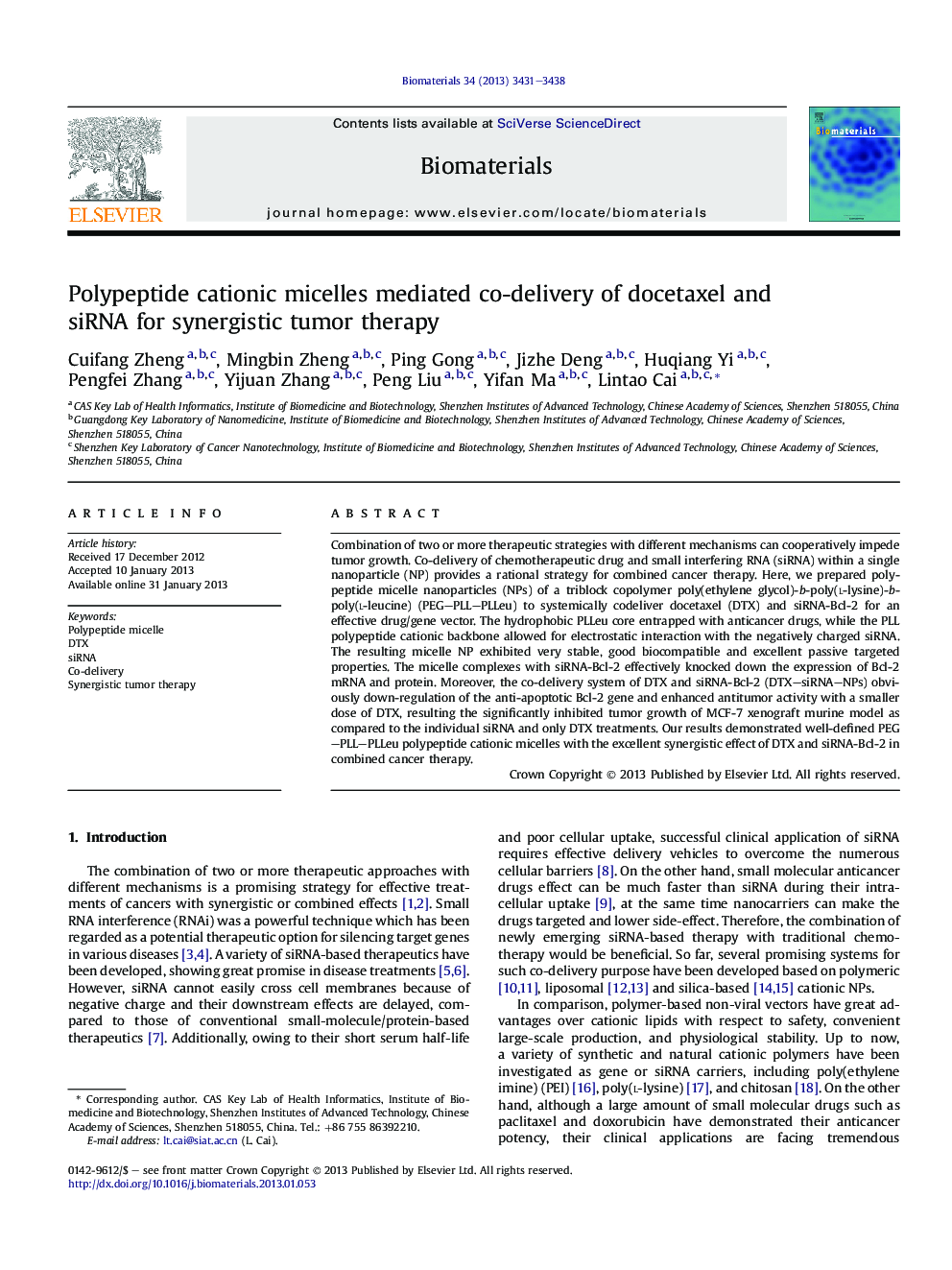| Article ID | Journal | Published Year | Pages | File Type |
|---|---|---|---|---|
| 10229191 | Biomaterials | 2013 | 8 Pages |
Abstract
Combination of two or more therapeutic strategies with different mechanisms can cooperatively impede tumor growth. Co-delivery of chemotherapeutic drug and small interfering RNA (siRNA) within a single nanoparticle (NP) provides a rational strategy for combined cancer therapy. Here, we prepared polypeptide micelle nanoparticles (NPs) of a triblock copolymer poly(ethylene glycol)-b-poly(l-lysine)-b-poly(l-leucine) (PEG-PLL-PLLeu) to systemically codeliver docetaxel (DTX) and siRNA-Bcl-2 for an effective drug/gene vector. The hydrophobic PLLeu core entrapped with anticancer drugs, while the PLL polypeptide cationic backbone allowed for electrostatic interaction with the negatively charged siRNA. The resulting micelle NP exhibited very stable, good biocompatible and excellent passive targeted properties. The micelle complexes with siRNA-Bcl-2 effectively knocked down the expression of Bcl-2 mRNA and protein. Moreover, the co-delivery system of DTX and siRNA-Bcl-2 (DTX-siRNA-NPs) obviously down-regulation of the anti-apoptotic Bcl-2 gene and enhanced antitumor activity with a smaller dose of DTX, resulting the significantly inhibited tumor growth of MCF-7 xenograft murine model as compared to the individual siRNA and only DTX treatments. Our results demonstrated well-defined PEG-PLL-PLLeu polypeptide cationic micelles with the excellent synergistic effect of DTX and siRNA-Bcl-2 in combined cancer therapy.
Keywords
Related Topics
Physical Sciences and Engineering
Chemical Engineering
Bioengineering
Authors
Cuifang Zheng, Mingbin Zheng, Ping Gong, Jizhe Deng, Huqiang Yi, Pengfei Zhang, Yijuan Zhang, Peng Liu, Yifan Ma, Lintao Cai,
